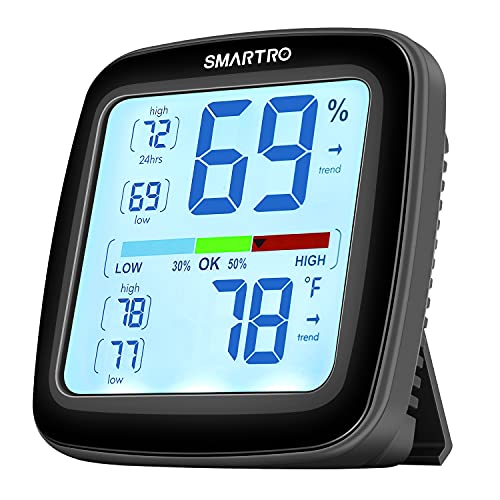Have you recently moved into a new house, or maybe you are a first-timer in using a dehumidifier? Are you curious about what size dehumidifier is perfect for your basement? You are in the right place! We just asked some HVAC experts regarding that matter to help you out.
The overall moisture removal capacity of a dehumidifier determines the size you will need for your basement. You will need to measure the capacity in pints per 24 hours of moisture eliminated. Additionally, you will need to match the square footage of your area to the humidity conditions in your basement to determine the capacity you need.
To know the more detailed information about the sizing of dehumidifiers for your basement, we suggest you keep reading. Doing so will also answer some of the additional questions running through your mind. Please read on and dig deeper for more details.
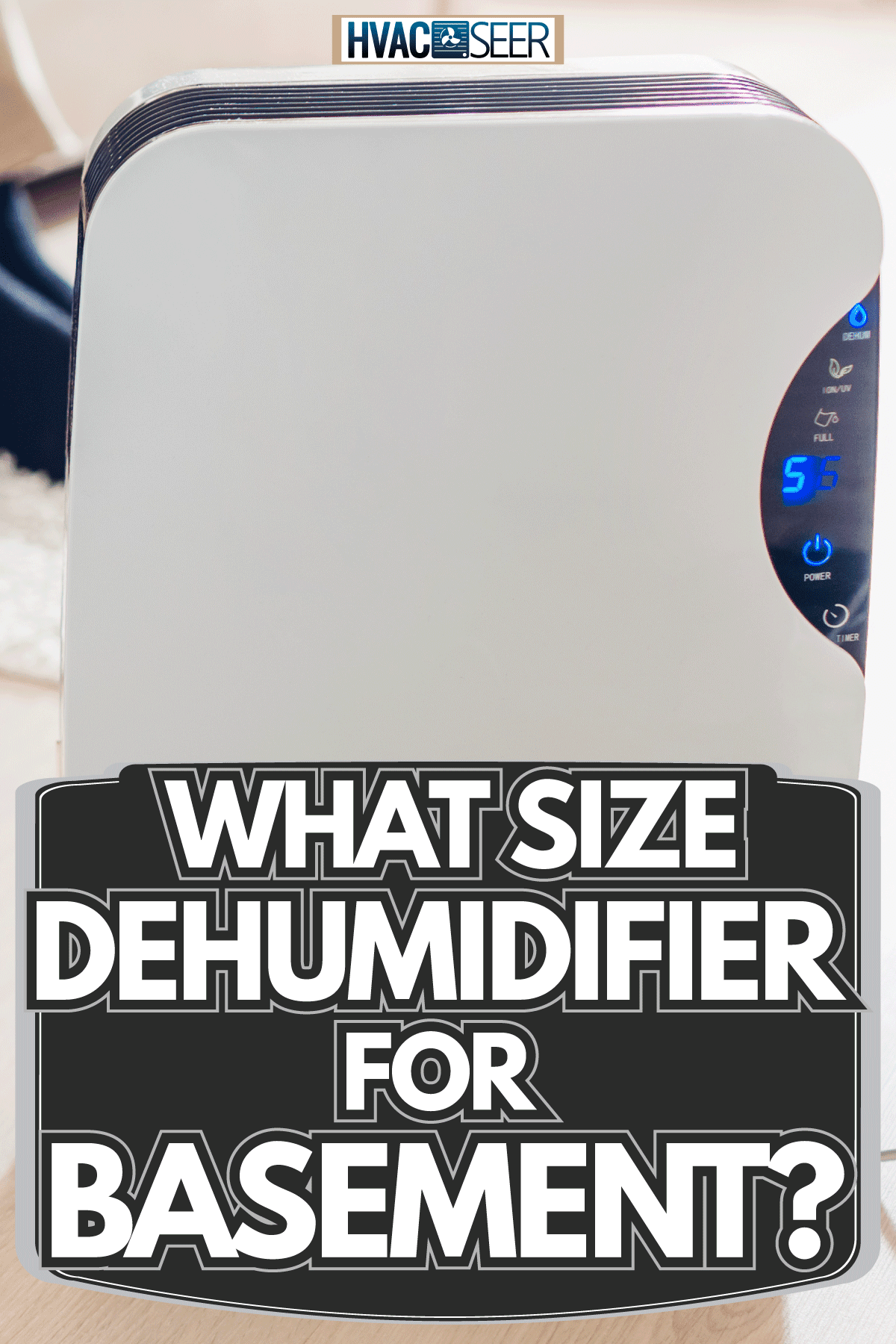
Dehumidifier Sizing Chart For Your Basement
|
DEHUMIDIFIER SIZING CHART |
||||
|
SQUARE FOOTAGE OF YOUR SPACE |
||||
|
CONDITIONS IN YOUR SPACE |
300 sq. Ft. | 500 sq. Ft. | 800 sq. Ft. | 1,200 sq. Ft. |
|
Slightly Damp 50-60% Humidity |
20 pint | 25-30 pint | 35-40 pint |
50 pint |
|
Moderately Damp 60-70% Humidity |
20 pint | 25-30 pint | 35-40 pint |
50 pint |
|
Very Damp 70-80% Humidity |
25 pint | 30 pint | 45 pint |
55 pint |
|
Wet 80-100% Humidity |
25-30 pint | 35-40 pint | 45-50 pint |
60 pint |
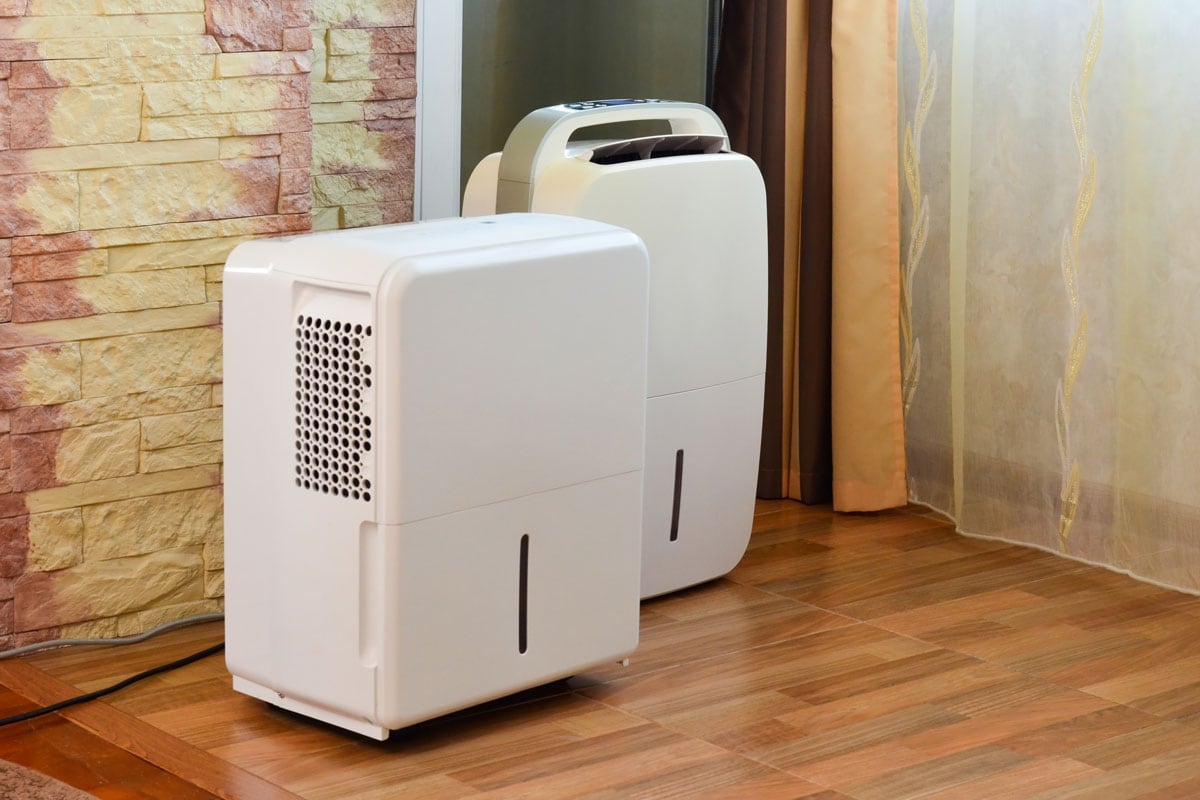
|
BASEMENT, CRAWL SPACE, AND WHOLE-HOUSE DEHUMIDIFIER SIZING INFO |
|||
|
PINTS OF WATER REMOVAL |
|||
|
BUILDING CONDITIONS |
70-80 PINTS | 85-100 PINTS |
100-155 PINTS |
|
Loosely Sealed |
Up to 1,800 sq. Ft. | Up to 2,200 sq. Ft. | Up to 3,600 sq. Ft. |
| Moderately Sealed | Up to 2,200 sq. Ft. | Up to 2,600 sq. Ft. |
Up to 4,000 sq. Ft. |
| Tightly Sealed | Up to 2,600 sq. Ft. | Up to 3,000 sq. Ft. |
Up to 4,400 sq. Ft. |
"How To Choose the Right Size Dehumidifier," Sylvane, 2022, https://www.sylvane.com/choosing-the-right-size-dehumidifier.html
Room Conditions Vs. Room Size
Selecting the right dehumidifier size depending on the measurement of your area and its capacity solely is not enough. To find the appropriate size, it would be best if you consider the conditions of your room.
How damp is your basement? You can probably go with the square footage's rated capacity if it is only somewhat damp. However, if you are working in a particularly damp environment, you will require a large capacity device. A unit that can terminate 50 pints of water in saturated air, for instance, is less effective than a unit that can clear 50 pints of water under normal room conditions.
Finding The Right Dehumidifier For Your Basement
Before you buy the first dehumidifier you see, it would be best to understand the product more and your home to find out the right size you need. In addition, you should also know the type and its efficiency in reducing the humidity level indoors.
1. Check for excess moisture
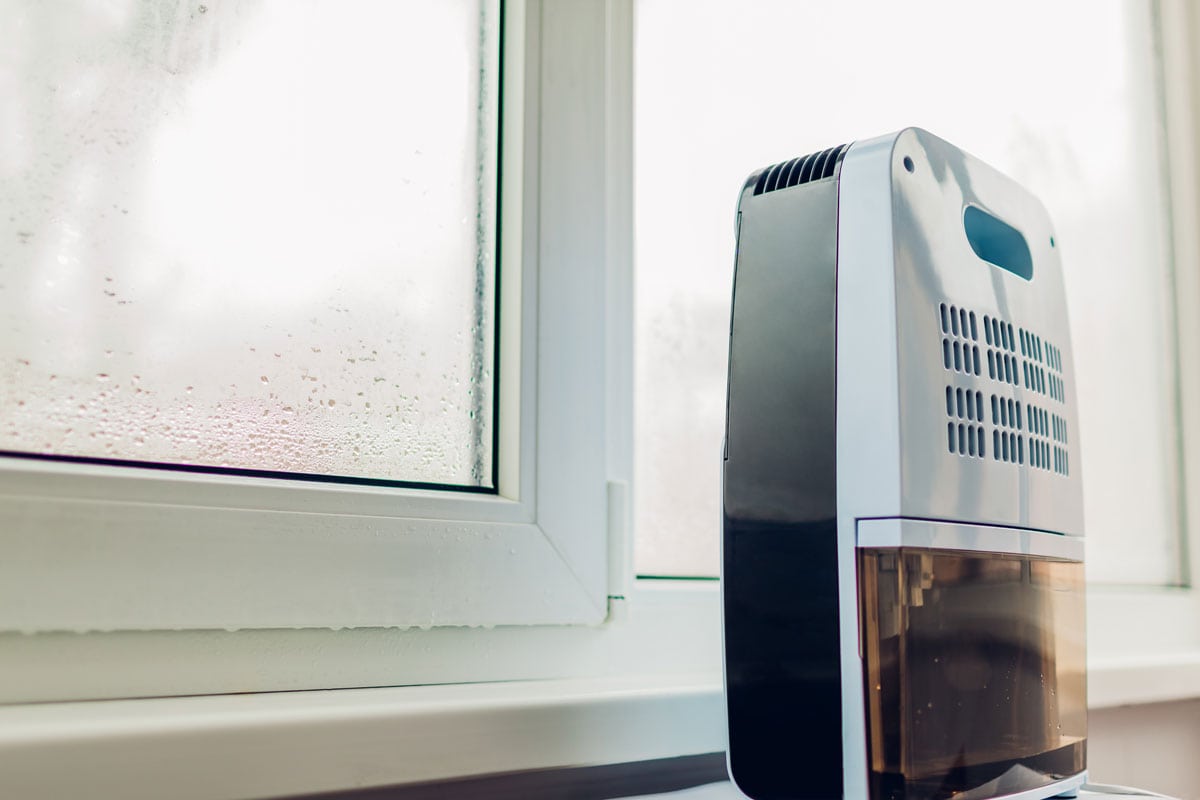
Some signs will tell you if your area has excessive humidity. For instance, you can check your doors and windows for excessive condensation or fogging signs. And you can also do the same with your walls or ceilings.
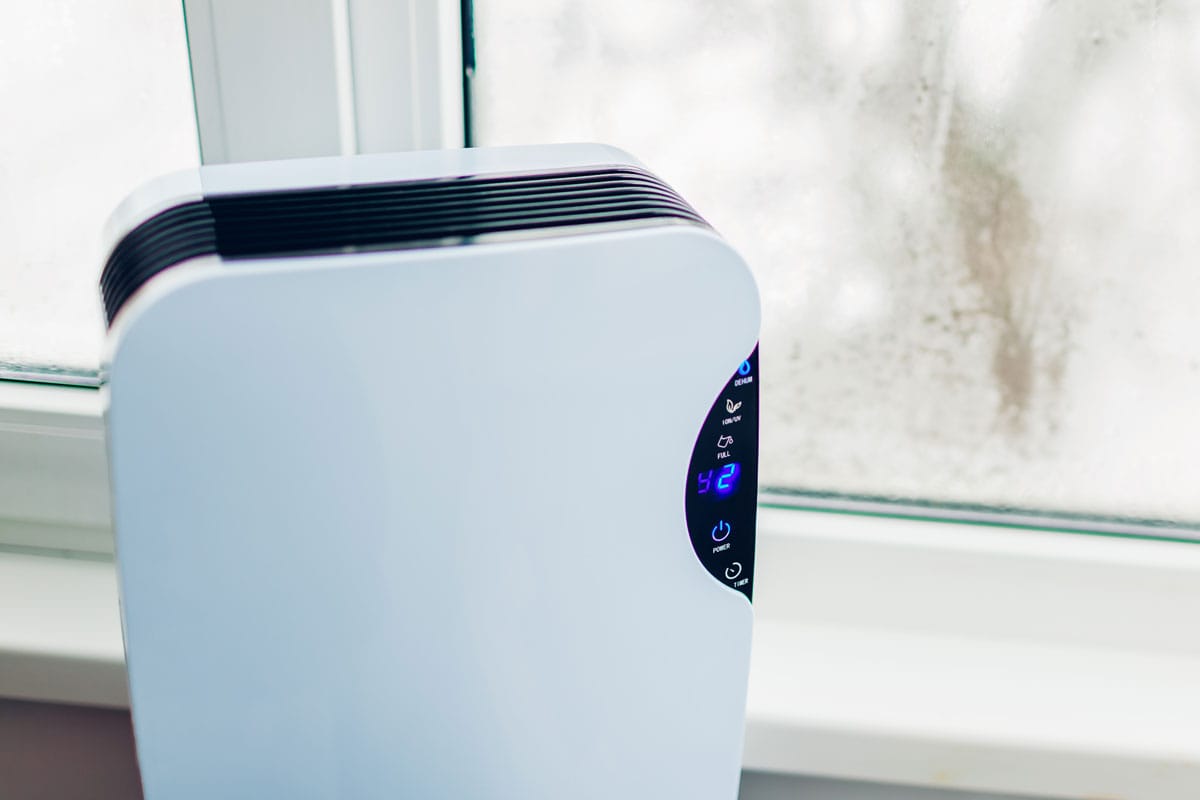
However, if you see fogging and excessive condensation and are still unsure about your basement's dampness difficulties, you can opt to purchase a humidity gauge. A humidity gauge is also called a hygrometer, and you can use this to measure the quality of the indoor air. Additionally, this device is an excellent help in investigating your problem.
A humidity level of 30 percent to 60 percent should be acceptable for most quarters, but keeping it closer to 30 percent to 50 percent will guarantee that the air is comfortable to breathe in. You should use a dehumidifier if the humidity level exceeds this recommended range.
Check out this Hygrometer on Amazon.
2. Identify the scope of the problem
Is the problem exists only in one place, such as your basement, or does it affect the entire house? The extent of the challenge directly determines the character of the answer. Larger whole-house dehumidifiers are connected to the HVAC system and have a drainpipe that drains into a slop basin outdoors or the sump pump. These dehumidifiers are not cheap and require professional installation.
On the other hand, portable dehumidifiers are more user-friendly and far less costly. They plug directly into the wall and have a simple-to-comprehend and set up built-in interfaces. Additionally, some of them have hoses that automatically drain the collected water. And some portable dehumidifiers have a collection bucket that you need to empty frequently.
3. The number of occupants in a home
If you ask what is the primary factor to consider when choosing the right size dehumidifier, it is the basement's square footage. However, other household requirements impact the humidity level in a particular area.
People sweat, exhale hot or humid air, and drink water. Therefore the more extensive the number of people in the house, the higher the humidity. The humidity that people produce is less in most homes, but large families, such as six or more people, may choose a more extensive dehumidifier to manage higher humidity levels.
4. Size and number of doors and windows
In addition, the quantity and size of doors and windows can also impact the humidity levels in the home. Because windows and doors allow heat to enter the residence more easily, expect humidity to get higher. Moreover, huge windows are inadequate insulators that result in greater humidity levels.
5. Usage of bathroom and laundry room
When you are using your shower or washing machine in the basement, you will notice that the humidity levels increase, so investing in a dehumidifier that can excellently manage the increasing air humidity is significant.
6. Prioritize energy efficiency
Dehumidifiers can deliver constant fresh and dry air in the basement or your entire home. Plus, it can result in an energy-efficient solution that improves the air quality indoors and prevents mold buildup throughout the season.
Advantages of Dehumidifiers
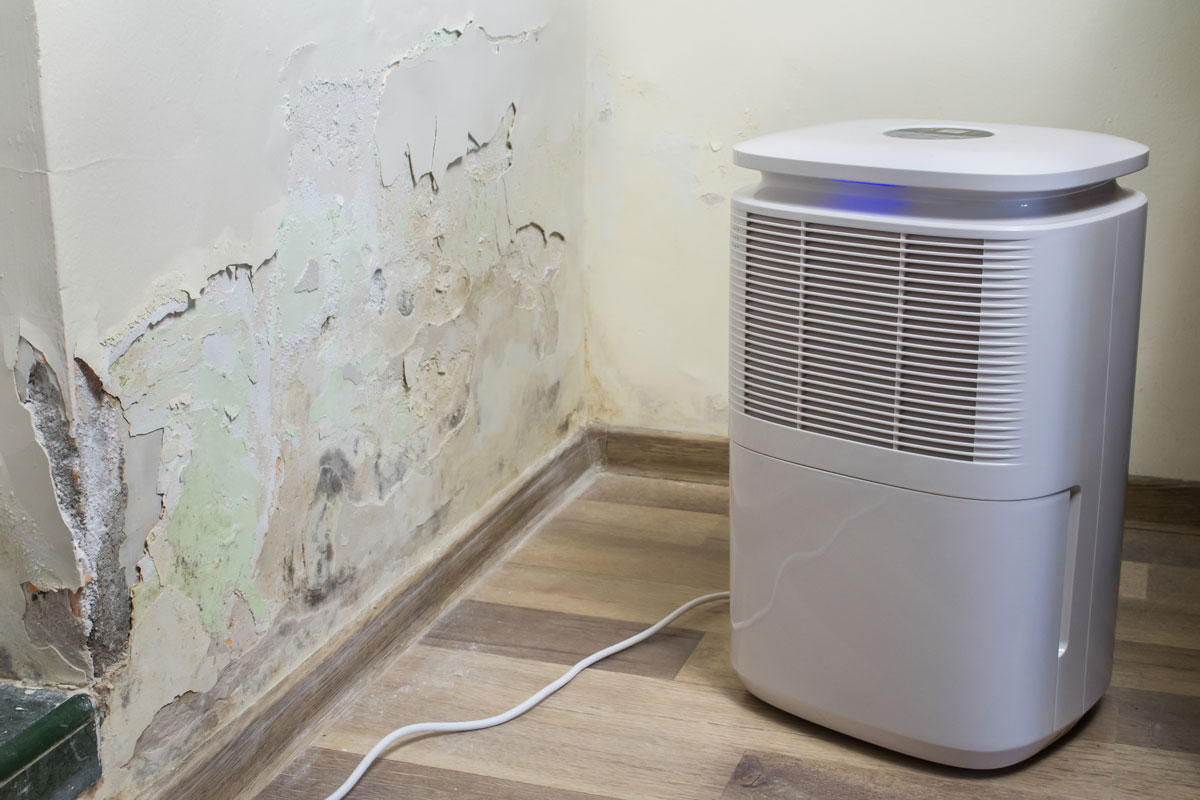
There are numerous reasons why utilizing a dehumidifier in your home is beneficial. Since dehumidifiers can stop the existence of mildew, mold, and dust mites in your home, they can help in soothing allergy symptoms and other health issues. In addition, it can help minimize ambient dampness in the air, which shields the home from corrosion and decay from the dampness accumulation from ceiling, windows, and walls. To summarize:
- Dehumidifiers help in reducing allergy symptoms.
- It prevents mildew, dust mites, and mold buildup.
- Shields and protects your home from premature decay and rust
Disadvantages of Dehumidifiers
Dehumidifiers' disadvantages are also inevitable. Aside from adding energy consumption, they also need maintenance regularly to ensure that they will operate correctly. Maintaining means you should clean the device and empty the collection bucket.
The continuous hum of the dehumidifier, especially at higher running levels, might be annoying to some people. So, before you purchase and bring a dehumidifier at home, it would be best to do your research on how loud it is or if you really need one. To summarize the drawbacks:
- Increases the consumption of energy or electricity
- Requires maintenance on a daily basis
- Continuous background or operating noise
Additional Room Conditions To Consider For Your Basement Dehumidifier
If any of the following apply to you, it would be best to choose a dehumidifier with a larger capacity:
- If you reside in a humid climate, you should increase the amount by 10 pints.
- When there is a washing machine or a dryer in your basement, it will help if you add five more pints.
- If numerous people spend time in the basement, you should add five pints.
- If the area has several windows and doors, increase the amount by five pints.
To effectively remove the increasing moisture level from the air in a severely damp basement or other areas in your home, it would be best to increase the dehumidifier's size. For a 500 sq. Ft. space, select a dehumidifier that holds 12 pints of water, plus five pints for every extra 500 sq. Ft.
Wrapping It All Up
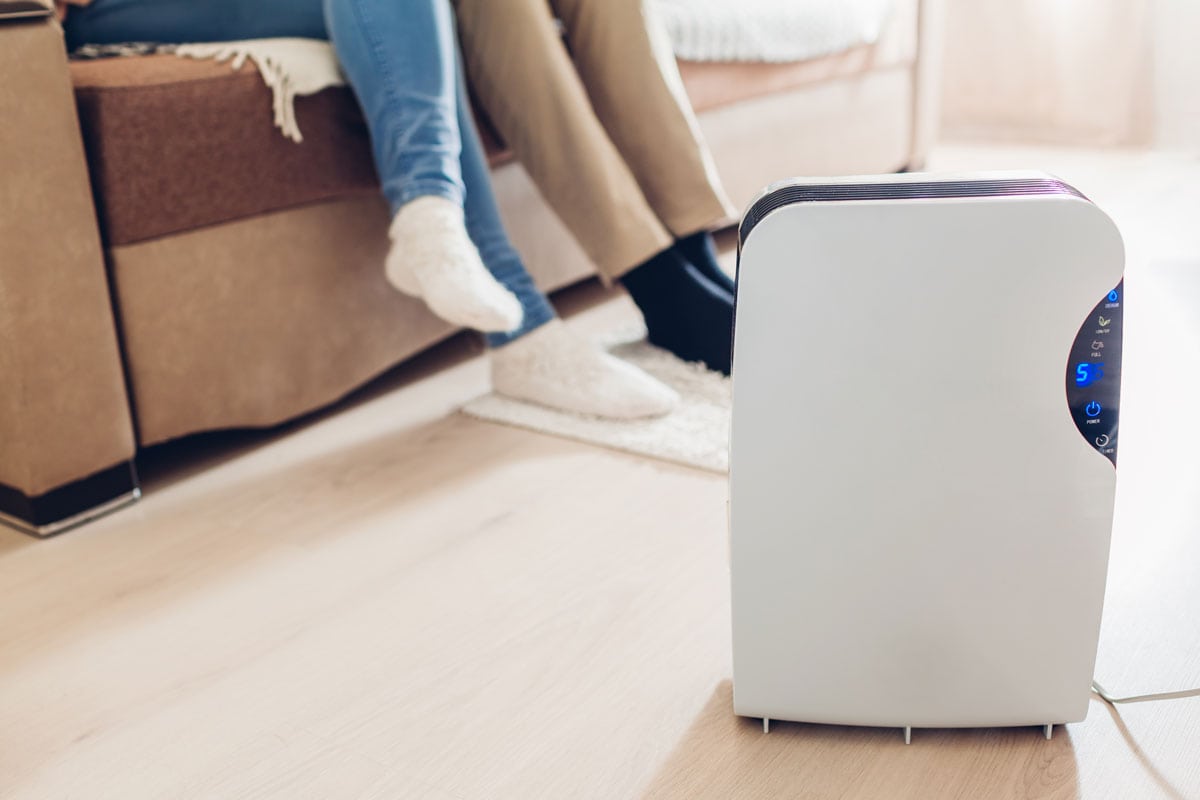
When purchasing a dehumidifier for your basement, you should not take it easy. Choosing the right size unit for that area will successfully remove the excess moisture or humidity. Plus, you wouldn't want to waste your money buying a dehumidifier that won't work well because of its wrong size.
We hope you find this post helpful. nd if you want more of our posts, you can check these related articles below:
What To Set Dehumidifier At In Basement? Summer And Winter)

